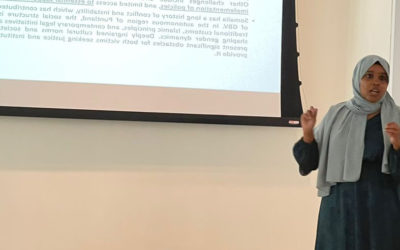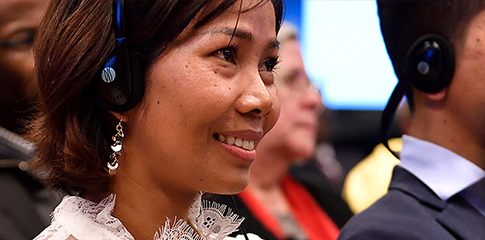There has been a marked revival of industrial policy across the African continent since the mid-2000s, in countries such as Ethiopia and South Africa, as well as in numerous reports by continental institutions such as the United Nations Economic Commission for Africa (UNECA). African governments believe that industrial policy can help create jobs and reduce the dependency of their economies on natural resources and primary sectors more generally. Late industrialisers such as South Korea were characterised by the growing agility of government interventions aimed at supporting and disciplining firms to promote learning or upgrading in dynamic sectors. But can African governments succeed, given the capacity constraints they face?
Most observers and donors doubt it. They warn against the risk of squandering limited resources and advise to do what you can and let others take care of the rest, following the compass of current comparative advantage. Against this prevalent pessimism, I argue that industrial policy can succeed in Africa if government learning is encouraged and prioritised, rather than stifled. To achieve this, a number of obstacles will have to be overcome, in particular the (externally imposed) focus on macro-economic stability and the anti-learning bias of policy development programmes, including those aimed at capacity building.
Overcoming the narrow focus on macro-economic stability
Alice Amsden1 remarked that building a competent economic bureaucracy was always a political decision. In a context characterised by limited resources and capacity, it is impossible for governments to do everything; successful late industrialisers prioritised sector policies to grow their economies – and got better at them over time, allowing for ever more complex interventions to be implemented. Herein lies the first obstacle that must be confronted in Africa. While structural adjustment programmes have led to a dramatic trimming of the state, undermining its capacity through staff and pay cuts, selective efforts have subsequently been deployed by donors to build competent macro-economic bureaucracies. The latter however serve the needs of loan reporting and are primarily concerned with stability; they epitomise what Bergamaschi2 called ‘donor-driven ownership’.
While macro-economic capacity is important, it has effectively been propped up at the expense of other policy capacity. Nubukpo3 thus points out the striking contrast between the impressive implementation record of macro vs. micro (sector) policies in the West African Monetary Union. So, if industrial policies are to succeed, they need to be given greater priority. Simple, isn’t it? It may not be so straightforward in reality, given the policy co-ordinating role that Ministries of finance have come to assume since the 1980s due to their greater capacity and, in aid-dependent countries, their critical position in public finance.
The anti-learning bias of external expertise
The second and more arduous issue is: how can industrial policy capacity be meaningfully developed? The typical response to weak capacity has been to draw upon expertise external to the state. The consensus is that to avoid misallocation and failure, ‘good’ policies ought to follow international best practices. Evidence-based policy has thus been elevated to a near-religious status and carries with it a warning against reckless initiatives. The problem is that emphasizing the need to follow external advice in policymaking runs counter to what would build the very capacity required to design and implement successful policies.
Like any other learning process, policy learning is endogenous; it proceeds through trial and error more than through external advice. This is especially true when the latter is framed in a patronising way, as it tends to undermine both the confidence and motivation of national policy makers. Hirschman has thus emphasized how learning from failure played a key part in governments developing the confidence and capacity to adjust policies – a good policy is in reality nothing more than a good enough policy, one that undergoes improvements inspired by the difficulties it faces. After observing numerous development projects, Hirschman remarked that what developing countries typically lacked the most was the capacity to make independent development decisions.
This is not to say that policy experts have nothing useful to contribute. The problem is that they tend to substitute rather than support policy development; advice is only useful when you can process it and adapt it to your needs, something that is difficult when existing capacity is very limited. This can be seen in the widespread separation between policy design, which is typically outsourced (and constitutes a growing market for international consulting firms), and implementation. If policies are developed in silos from which those tasked with implementation are excluded, how can learning take place? Instead of acting as a real-life experiment from which to learn, implementation becomes a tediously codified exercise, straightjacketed by a myriad key performance indicators. The upshot is that the tail (monitoring indicators) wags the dog (policies). Unsurprisingly, the outcomes tend to fall short of the grand objectives set out by glossy policy plans.
Regardless of the quality of the advice provided, external expertise can thus stifle the space for policy learning, which takes place in the practice – including failure – of policymaking. In other words, if domestic policy makers do not take a lead role, the lessons from implementation cannot be learnt. This anti-learning bias must be addressed if African governments are to pursue successful industrial policies. Promoting greater endogenous capacity development may require a return to the classic Weberian characteristics of effective states – their ability to attract, retain and reward talent.
Conclusion: Reclaiming the right to learn by doing
Those dismissing industrial policies as too complex for African countries forget that development is a dynamic process, as best exemplified by the concept of ‘latecomer advantage’. Late industrialisers were able to grow faster than forerunners because they learned from the latter’s experience. Although successful industrial policies are not a pipedream, they will require deep changes, starting with the purposeful re-allocation of policy capacity. The Washington Consensus-inspired obsession with macro-economic stability has cost African countries dearly, while their reliance on external expertise has not promoted the learning required to implement successful policies. The space for policy development and implementation should be claimed as a development right – the right to learn or, to put it provocatively, the right to fail. The good news is that, if policy learning is fostered adequately, it is advisable to embark on ambitious policies as they offer greater scope for capacity building.
NICOLAS PONS-VIGNON
Senior Researcher, School of Economics and Finance, University of the Witwatersrand, South Africa
nicolas.pons-vignon@wits.ac.za
1 a leading scholar of late industrialisation
2 Isaline Bergamaschi: Professor in Political Science
3 Kako Nobukpo: Togolese politician and macroeconomist









0 Comments